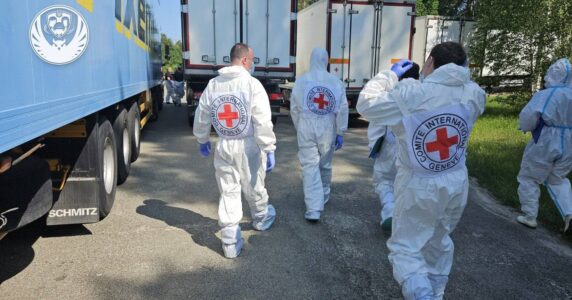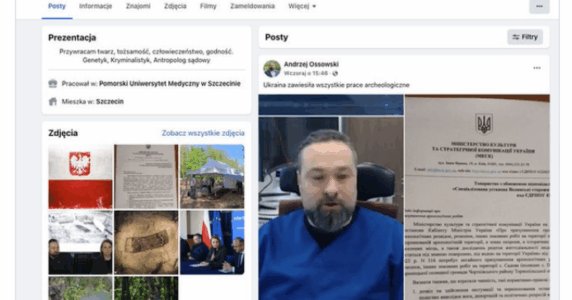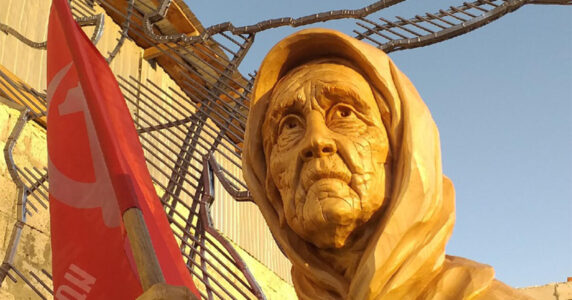Navigation and useful materials
Throughout his political life, the Russian leader has been known for aggressive behavior, trying to portray himself as a “tough guy,” looking like an overlord, and imagining himself a movie hero. But the truth is, Putin has long been an aging dictator whose behavior is largely unacceptable in the civilized world.
Russia’s politics, both internal and foreign, quite often have the same inclinations.
One of the few things due to which Russia has been so far reckoned with in the international arena is its “military strength.” Over the past twenty years, Russia has spent millions and billions on creating this image. “The world’s second-strongest military,” “no analogs,” “the mighty superpower” that can force the US and Europe to reckon with its ambitions bordering on insanity.
For all these years, the creation of this image has been the center of Russia’s attention, with internal problems neglected instead. But the myth of Russia’s “military strength” shattered too when it came against the Armed Forces of Ukraine. Essentially, Russia’s failures in Ukraine, sanctions imposed by the West, isolation, and expenses became a mirror for Russia where one can see an “ordinary” but degrading country.
Russia’s authorities are “the Tsar,” and its citizens are merely “the crowd”
Many of Russia’s problems spring from its history, which overestimates the role of the one individual, or rather, the significance of the ruler in the state. Russia lacked competing powers (which needed for democracy) 300 years ago just like it lacks them now. The same goes for societal pressure on the ruler. That is why authoritarian power has been so well-preserved all this time.
The authorities in Russia have always relied on mob psychology. This implies that the people must be deprived of opportunities to use their sovereign right to choose a government and demand its dissolution. Here’s a paradox for you: at the beginning of his first presidential term (the one in the past century), Putin positioned himself as a pro-European politician. Today, he is going against European values and the entire civilized world. And just think! The level of support for him among the Russians is almost unchanged.
The usurpation of power in Russia triggered the suppression of democracy. And this essentially ruined the country’s chance for growth.
The alternative solution that Russia found was to appropriate foreign history (say hello to the myth of Kyivan Rus’ as the beginning of Russia). And the next step was to always look for enemies from the outside, start wars, “stir up” other countries, and shift the focus of attention.
Russia has chosen a path of intimidating the world, not the development
Decades ago, Western and European countries realized that democracies are much more effective than totalitarianism. Instead, the Kremlin’s bet is still on authoritarianism, which is close to the dictatorship of the military elite.
Therefore, in fact, the main vector of the Russian policy until now is to promote aggression, threatening the world with a new World War, which, as it was believed in Europe, will never happen again.
The Kremlin, on the other hand, is aware that as soon competition goes beyond military strength—let’s say when it comes to economics or healthcare, the whole world will know the truth, and Russia will be left trailing behind.
Why invest huge resources in economic development, when you can terrorize the world with wars and famine?
But even in this military oriented strategy, significant miscalculations are possible. And one of them is a bet on supposedly “unlimited” resources.
What is wrong with Russia’s “greatness”?
Throughout its history, Russia has relied on a resource-based economy. At the same time, it is extremely insignificant compared to the US and China.
While resources changed (gold to oil to gas), they remained central to Russia’s budget. About 40-50% of current budget revenues come from the oil and gas sector. And this share may continue to grow. This makes Russia vulnerable.
The US and Europe have already imposed tough sanctions against Russia because of its invasion of Ukraine. And these sanctions dealt an irreparable blow to Russia’s economy in the long, not the short term. And while Russians may have not felt the damage to its full extent yet, in 3-5 years the sanctions will affect every other Russian family.
It is very difficult for Europe to include the entire energy sector in the sanctions package, because about 40% of the gas imported to the EU is Russian. However, the course of the West’s gradual rejection of everything Russian already looks inevitable. And for Russia, in fact, this is a much bigger problem than for Europe. After all, the reorientation of oil and gas from the Russian Federation to Asia will require a lot of time and enormous resources (in particular, for the construction of the necessary infrastructure).
The consequence will be a drop in production and revenues, which the Russian Federation needs to continue its aggressive but very expensive policy.
To wrap it up
It’s long past time for the Russians to realize that the cause of their past, present, and future troubles is their leadership’s refusal to accept the reality in which Russia is a mediocre country. To get a chance for prosperity, the Russian Federation needs to curb this process of isolation from the civilized world. Unfortunately, its military aggression against Ukraine is the only reason why the world still has to negotiate with this country.
If you have found a spelling error, please, notify us by selecting that text and pressing Ctrl+Enter.


